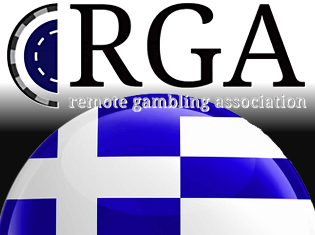 Two unidentified members of the Remote Gambling Association (RGA) have launched legal proceedings against the Greek government for allegedly slowrolling their online gambling license applications in order to ensure a decent price for the sale of the government’s stake in the OPAP betting monopoly. In July, the two unnamed companies filed online gambling applications with the Hellenic Gaming Commission (HGC) and the Minister of Finance, only to have the HGC claim not to be the proper government agency responsible for such matters, while the Minister failed to respond at all within the timeline dictated by Greek law.
Two unidentified members of the Remote Gambling Association (RGA) have launched legal proceedings against the Greek government for allegedly slowrolling their online gambling license applications in order to ensure a decent price for the sale of the government’s stake in the OPAP betting monopoly. In July, the two unnamed companies filed online gambling applications with the Hellenic Gaming Commission (HGC) and the Minister of Finance, only to have the HGC claim not to be the proper government agency responsible for such matters, while the Minister failed to respond at all within the timeline dictated by Greek law.
Although the RGA declined to specify which two of its members were filing the complaint, Betfair and William Hill had announced in July that they’d filed their online gambling applications with the Greek authorities. The RGA maintains that the two Greek bodies cited in the complaint were competent authorities with the power to handle the applications, raising suspicions as to the true motive behind the bureaucratic delay.
In 2011, Greece issued two-dozen temporary licenses to online gambling firms, but these licenses were revoked in November 2012. A month later, Greece announced it would extend OPAP’s online monopoly on sports betting and random number generator games until 2020. The European Court of Justice declared this plan to be illegal, leading Greece to submit a revised plan, which the European Commission bigwigs are still mulling. Greece was notably absent from a recent EC missive chastising other state monopolies over their anti-competitive policies.
Greece had been more or less ordered to sell off its 33% stake in OPAP and other state assets to help repay the €240b bailout it received in 2010 via the European Union and the International Monetary Fund. The RGA has long held the position that Greece’s efforts to preserve the online gambling market as a one-stop shop as long as possible was due to its desire to fetch the best possible price for the asset sale. The €652m sale to the Emma Delta consortium was announced in May but not finalized until August.
RGA CEO Clive Hawkswood suggested the Greek government’s actions have left it open to compensation claims not only from online operators unfairly shut out of the market, but also from OPAP investors, “to the extent that they may have been led to believe that OPAP did have a monopoly.” Hawkswood also accused the Greek government of short-term thinking, noting that an online market with lots of licensed companies would have ensured healthy tax revenue for the cash-strapped country’s coffers, rather than increased government expenditure on unnecessary court proceedings.
